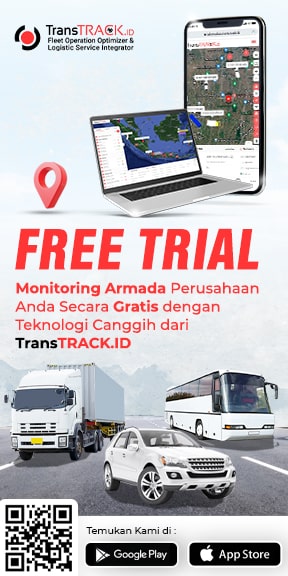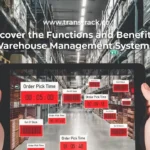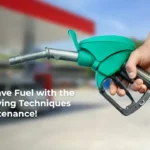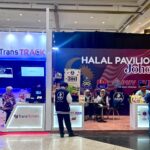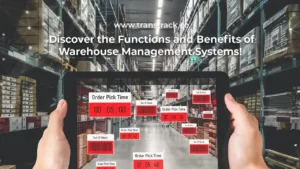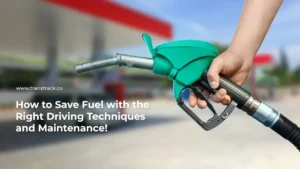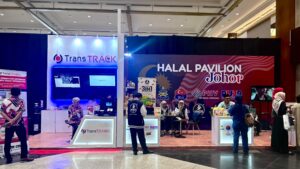Get to Know the Role and How to Use the National Logistic Ecosystem!
Posted on June 26, 2023 by Nur Wachda Mihmidati

National Logistic Ecosystem (NLE) is a term that refers to a system consisting of various elements and actors that interact with each other to support and optimize the logistics supply chain at the national level. NLE includes physical infrastructure, information technology, policies and regulations, as well as various related institutions and stakeholders that work together to facilitate the delivery of goods and services from one place to another within a country.
NLE aims to improve efficiency, reliability and transparency in logistics processes. By integrating and aligning various logistics components, NLE aims to address challenges such as high costs, demand and supply imbalances, increased traffic, and operational complexity associated with logistics activities.
One of the main goals of NLE is to improve connectivity between various modes of transportation, such as road, rail, and air lines, and facilitate the smooth movement of goods through optimal logistics channels. This could include developing and upgrading strategic transportation infrastructure, building distribution centers, using information and communication technology for tracking and management of shipments, and standardizing logistics processes and documentation.
With an effective National Logistic Ecosystem, it is hoped that faster delivery of goods, lower costs, improved service quality, and better support for the country’s economic and trade growth. Check out the roles and how to use NLE in the following TransTRACK article!
What is the Role of NLE in Indonesia
The National Logistic Ecosystem (NLE) has an important role in the development of the logistics sector in Indonesia. The following is a more in-depth explanation of the role of NLE in Indonesia:
Improve Logistics Efficiency
NLE aims to improve operational efficiency and logistics management in Indonesia. By integrating physical infrastructure, information technology, and standardized processes, NLEs can reduce logistics costs, optimize the use of transportation assets, and reduce the time and cost required to move goods from one place to another.
Improve Connectivity and Accessibility
NLE helps improve connectivity between various regions in Indonesia. By developing integrated transportation infrastructure, including a network of roads, ports, airports and railroads, NLE enables a smoother and faster movement of goods throughout the country. This is important to support economic growth and trade between regions.
Improving Logistics Services
With the NLE, it is hoped that there will be an increase in the quality of logistics services in Indonesia. Within an NLE, there are clear roles for various stakeholders, including logistics providers, transport operators, governments and other relevant agencies. Coordination and collaboration between these stakeholders can improve timely delivery, safe handling of goods, and accurate tracking.
Encouraging Investment and Innovation
NLE creates an enabling environment for investment and innovation in the logistics sector. By providing legal certainty, conducive policies and clear regulations, NLE creates incentives for logistics companies, transportation operators and technology providers to invest and develop innovative solutions in logistics management. This can increase the competitiveness of Indonesia’s logistics sector as a whole.
Facilitating Economic Growth
The role of a strong NLE can make a significant contribution to Indonesia’s economic growth. With increased efficiency and quality of logistics services, the industrial and trade sectors can develop better. NLE also encourages increased exports and imports, as well as facilitates the distribution of domestic products to the domestic market.
Digital Ecosystem Development
NLE encourages the development of a digital ecosystem in the Indonesian logistics sector. Information and communication technology applications, such as real-time shipment tracking, cloud-based supply chain management, and collaborative platforms, enable logistics stakeholders to interact efficiently and increase visibility into the movement of goods. This helps reduce errors, optimize resource use, and increase customer satisfaction.
Overall, NLE has a crucial role in increasing the efficiency, quality and competitiveness of the Indonesian logistics sector. By improving connectivity, facilitating investment and innovation, and building a strong digital ecosystem, NLE contributes to sustainable economic growth and improving people’s quality of life.
[display-post-read-also]
How to use NLE
To use the National Logistic Ecosystem (NLE), there are several steps and components that need attention. Here is a more in-depth explanation of how to use the NLE:
Physical Infrastructure
One of the main components of NLE is the physical infrastructure. This includes a network of roads, ports, airports, railroads, and storage and distribution facilities. The use of NLE involves using this infrastructure by ensuring good and optimal connectivity between various points across the country.
Information Technology
The use of information and communication technology (ICT) plays an important role in NLE. This involves the use of logistics information systems, electronic platforms, real-time tracking and monitoring, and other technologies that enable efficient processing of data and information sharing between various stakeholders in the logistics supply chain.
Standardization and Interoperability
It is important for NLE users to follow established standards and protocols to ensure good interoperability between the systems and processes involved. Standardization in terms of document formats, item identification codes, interface communications and operational procedures is an important factor for integrating various players in the NLE.
Policy and Regulation
Conducive policies and regulations are also needed to support the use of NLE. Governments need to implement policies that facilitate collaboration between the public and private sectors, encourage investment in logistics infrastructure, and provide incentives for innovation and use of technology in the logistics sector.
Collaboration and Coordination
NLE engages a wide range of stakeholders, including logistics companies, transport operators, government agencies and other relevant organizations. Good collaboration and coordination between these stakeholders is very important in optimizing the use of NLE. This can be done through regular meetings, discussion forums, cooperation on strategic projects, and exchange of up-to-date information.
Use of Data and Analytics
NLEs generate large amounts of data related to the movement of goods, infrastructure usage, and overall logistics performance. The use of data and analytics in NLE can help in better decision making and performance monitoring. Through data analysis, areas that need improvement can be identified, demand and supply can be estimated, and route optimization and transportation assets used can be optimized.
Overall, the use of NLE involves integrating physical infrastructure, information technology, and stakeholders in a well-coordinated ecosystem. By complying with standards and regulations, as well as through good collaboration, NLEs can be used to improve efficiency, transparency and logistics services in a country.
In implementing the National Logistic Ecosystem (NLE) to improve efficiency and logistics services in Indonesia, one solution that can be used is the Logistic Service Integrator from TransTRACK. Logistic Service Integrator is a platform that integrates various stakeholders in the logistics supply chain, enables effective collaboration, and facilitates real-time operational monitoring and management.
In order to encourage NLE adoption and utilization of the Logistic Service Integrator, TransTRACK also provides advisory services and technical support. Our team of experts can assist organizations in building and implementing solutions to suit their unique needs, as well as provide training to ensure maximum use of the platform.
By adopting TransTRACK’s Logistic Service Integrator, NLE users can strengthen efficiency, visibility, and decision-making in their logistics operations. Creating an integrated and effective logistics ecosystem through NLE and using solutions such as the Logistic Service Integrator will help Indonesia advance its logistics sector, drive economic growth, and meet increasingly complex market demands.
Topic :
 Bahasa Indonesia
Bahasa Indonesia


